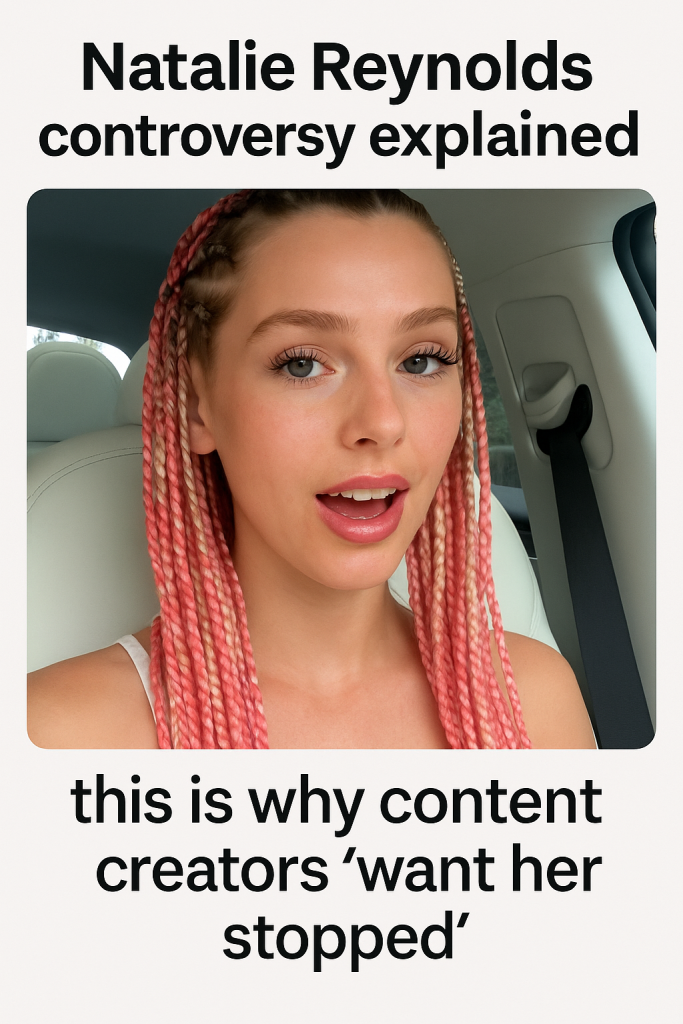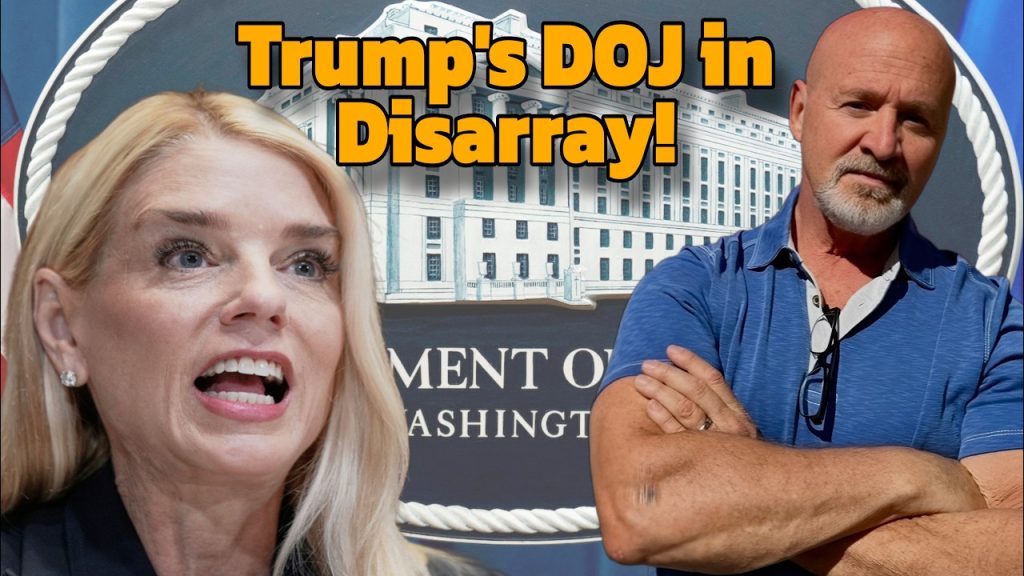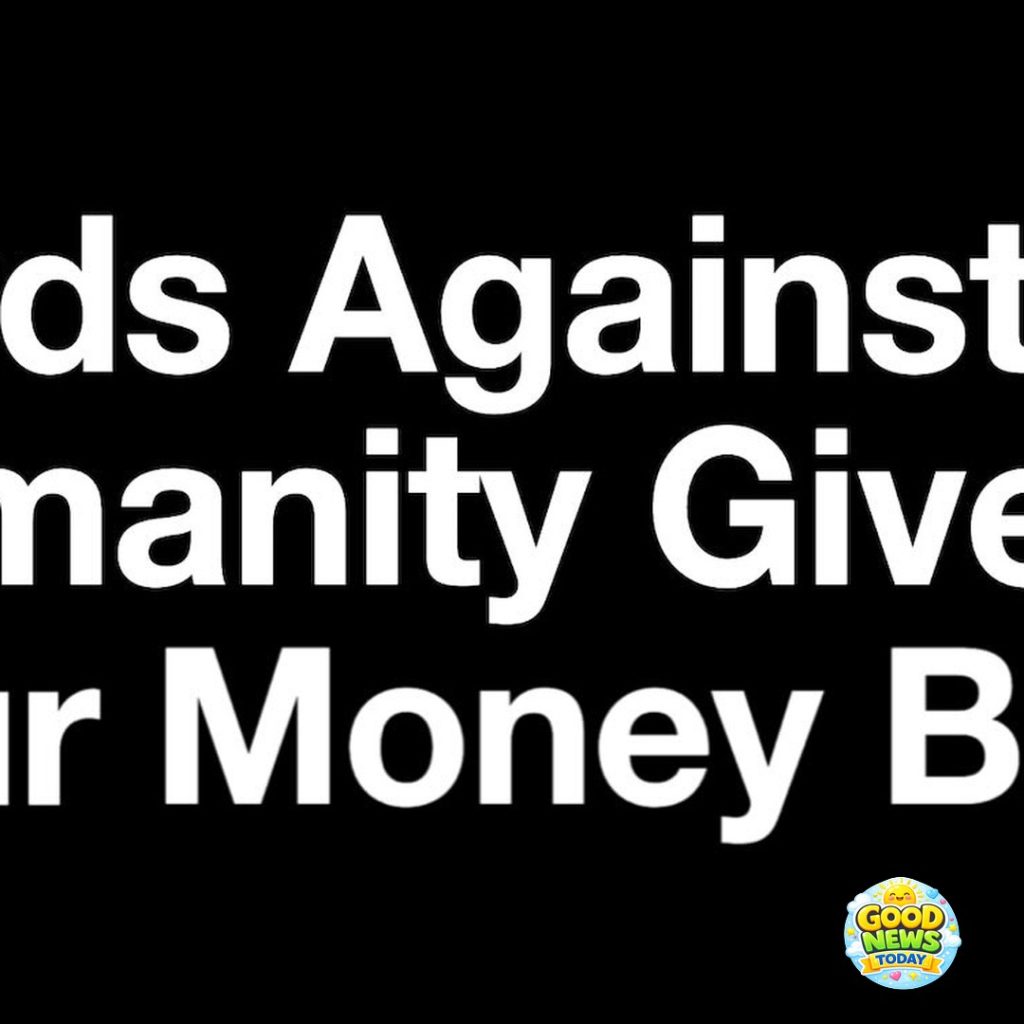In recent weeks, social media has been abuzz with heated debates surrounding Natalie Reynolds, a prominent content creator whose actions and statements have sparked unprecedented backlash within the online creator community. The controversy has grown so intense that a significant number of influencers and fellow creators are publicly calling for her to be “stopped,” igniting a complex discourse about accountability, ethics, and the power dynamics on digital platforms.
Who is Natalie Reynolds? Known for her lifestyle and entertainment content, Natalie Reynolds rose to prominence over the past few years with a substantial following across multiple social media platforms. Her content is often characterized by candid storytelling and vibrant aesthetics, earning her loyal fans. However, her recent actions have triggered a sharp decline in her standing among peers and audiences alike.
The controversy began when Reynolds was accused of misusing intellectual property and exploiting other creators’ work without proper credit or compensation. Several well-known creators in various niches have come forward detailing instances where Reynolds allegedly repurposed their content or concepts, presenting them as her own original material. This has ignited a broader discussion about plagiarism and the blurred lines of content originality in the digital age.
Beyond allegations of content theft, Reynolds has also been criticized for her response to these accusations. Sources indicate that she was dismissive and defensive rather than engaging constructively with those raising concerns. This approach has compounded the fallout, as many creators feel ignored and disrespected. The situation escalated after a livestream where Reynolds appeared to belittle other creators and downplay the severity of the accusations, which many interpreted as a lack of empathy and accountability.
The collective creator community response has been decisive and vocal. Many content creators have publicly voiced their frustration, some calling for platform interventions such as content monetization restrictions or temporary bans. Others are encouraging fans to be more discerning and critical when supporting influencers who operate without transparency or respect for industry ethics.
Experts observing the controversy say this backlash reflects a larger shift within the creator economy. As online personalities wield greater influence, there is an increasing demand for professionalism, originality, and respect among creators themselves. The Reynolds controversy serves as a case study in what happens when those expectations are perceived to be breached.
Additionally, social media users are engaging in discussions about the responsibilities that come with digital fame. Many argue that creators must uphold ethical standards to preserve the integrity of the creative community and avoid fostering toxic competition. In some respects, the call to “stop” Natalie Reynolds transcends a single individual’s behavior and highlights a collective push for reform in the way content is created, credited, and shared on the internet.
In response to the mounting pressure, Natalie Reynolds has issued a public statement affirming that she will “reflect on her actions” and “work toward rebuilding trust” with the creator community and her audience. Whether this will be enough to repair the damage remains uncertain as the debate continues to unfold.
What’s next? Platforms and content creators alike are watching closely to see how this saga will evolve. The incident underscores the need for clearer guidelines surrounding content ownership and ethical conduct online. It may also prompt social media companies to introduce more stringent policies to protect creators from exploitation and harassment.
Ultimately, the Natalie Reynolds controversy is a stark reminder of the challenges and responsibilities that come with the rapidly evolving world of online content creation. As the creator economy matures, so does the demand for accountability—a demand that creators like Reynolds are now facing head-on.



